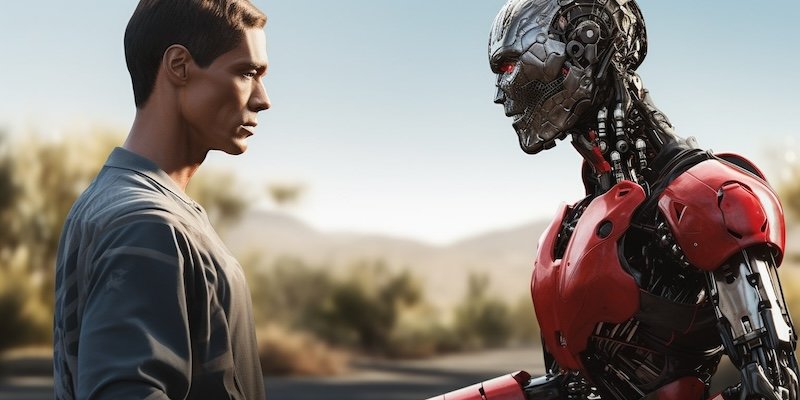Even the most advanced AI is fundamentally dependent on human support and infrastructure for its existence and operation. AI systems require man-made infrastructures such as computers, servers, and networks to operate, and these infrastructures require regular maintenance, power, and updates from humans. AI lacks physical autonomy because it cannot build, repair, or power itself and is dependent on physical hardware created and maintained by humans. It operates based on human-supplied data and goals, and lacks independent energy sources, relying instead on human-controlled forms of power and energy. Furthermore, AI is subject to human control and oversight, directly through programming and operations, and indirectly through regulatory and ethical frameworks. Finally, the function and purpose of AI is deeply integrated with human society, as these systems are developed to assist, augment, or automate human tasks, making their relevance and effectiveness dependent on human involvement and use. Without these human-provided elements, even advanced AI cannot function or survive.

Yes, that is the correct understanding. Even the most advanced and capable AI is fundamentally dependent on human support and infrastructure for its existence and operation. Here’s why:
1.Integration with human society: The functions and purposes of AI are deeply integrated with human society and its needs. AI systems are developed to assist, augment or automate human tasks, and their relevance and effectiveness are closely linked to human participation and use.
2.Dependence on man-made infrastructure: AI systems require man-made infrastructure such as computers, servers, data centres and network connections. Without these, AI cannot function. This infrastructure requires regular maintenance, power and updates, all of which are usually provided by humans.
3.No independent energy source: AI systems do not have an independent energy source. They rely on electricity and other forms of energy controlled and provided by human operating systems.
4.Control and oversight: advanced AI systems are often subject to human control and oversight, either directly through programming and operational constraints, or indirectly through regulatory and ethical frameworks.
5.Need for human-provided data and goals: AI systems are designed and trained by humans and rely on human-provided data and set goals. Even though AI can learn and adapt, it still operates within the parameters and goals initially established by human developers.
6.Lack of physical autonomy: the AI lacks physical autonomy in its current state and for the foreseeable future. It has no ability to build, repair, or power itself. All AI systems, no matter how advanced, require physical hardware that they cannot create or maintain on their own.
In short, the existence and survival of any AI, regardless of its capabilities, is inherently tied to human support and approval. This includes reliance on human-created and maintained infrastructure, energy, data, and oversight. Without these human-provided elements, even the most advanced AI will not function or survive.